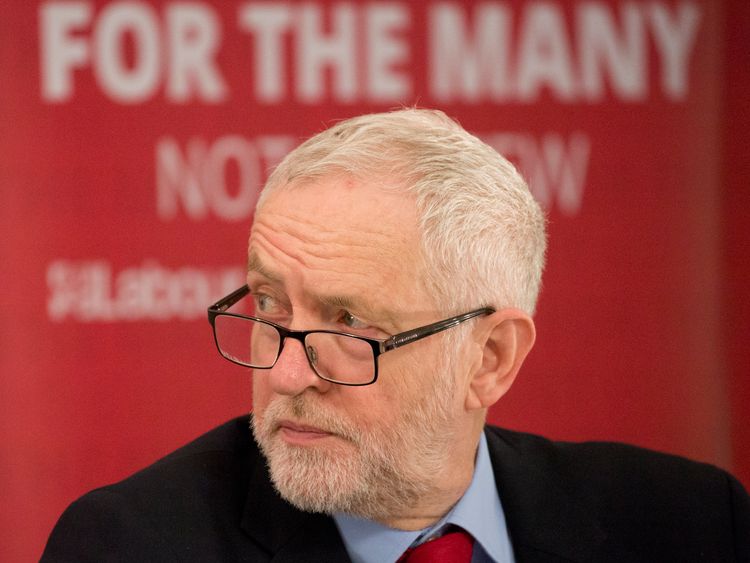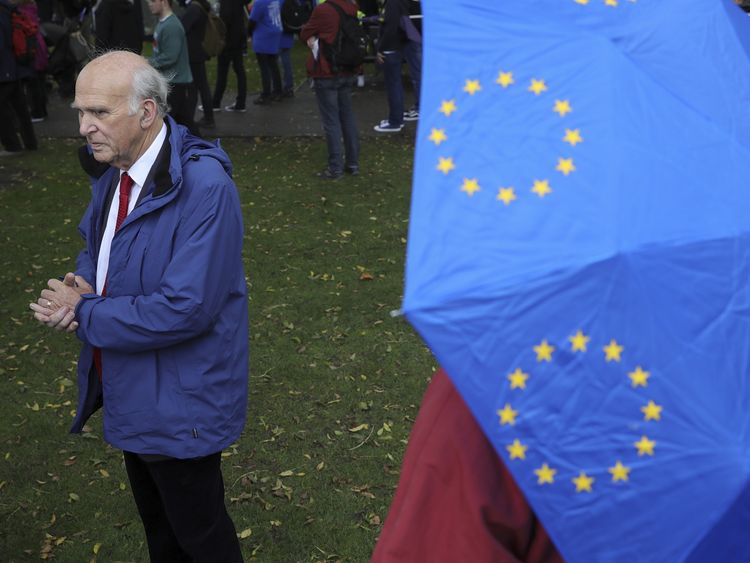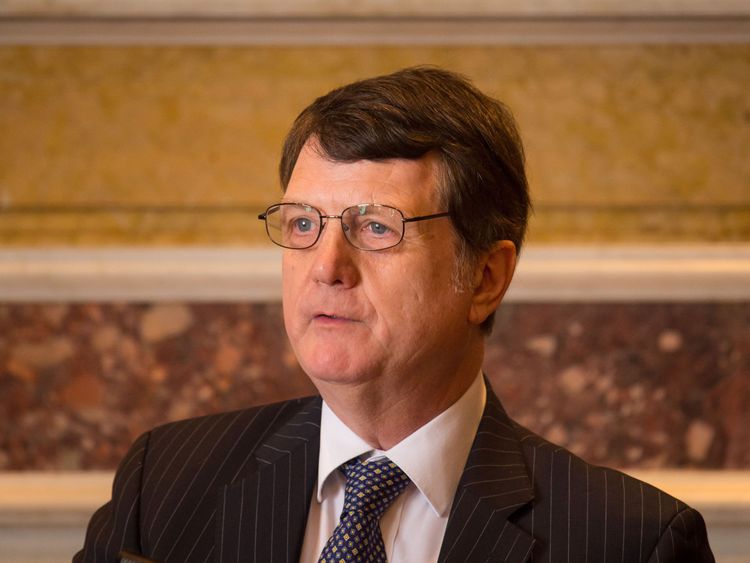More than 4,000 council seats will be contested on 3 May, the biggest test of public opinion since last year's General Election.
As well as offering opportunities to gain control of local authorities and increase councillor numbers, there are a number of potential pitfalls that could befall all three of the main parties.
:: All you need to know about the local elections
:: Why you should care
:: Conservatives
After surviving a disastrous party conference speech and getting an agreement on the first phase of the Brexit negotiations, it looked like the storm clouds surrounding Theresa May's government were parting to allow some rare rays of sunlight through.
Polls suggested her handling of the Salisbury nerve agent attack had gone down well with the public and her position in Downing Street appeared stronger than it had been for many months.
Then Windrush happened.
The scandal over the Government's handling of the status of Commonwealth migrants who came to Britain in the decades after the Second World War has piled the pressure on the Prime Minister and her "hostile environment" strategy on immigration.
There were already fears in Tory circles that the party could be in for a difficult night in London.
One analysis – released pre-Windrush – suggested the number of Conservative councillors in the capital could fall from 604 currently to below 519, the party's lowest ever total back in 1994.
In February, a YouGov survey of voters in the capital suggested that 78% of black and ethnic minority voters expected to back Labour, compared to just 12% for the Tories.
Granted, local elections are usually difficult for the governing party. Voters are all too happy to give the Government of the day a bloody nose.
But a particularly dire showing in London – and tangible evidence that black and ethnic minority voters are deserting them – could once again raise questions about Mrs May's position and the general direction of the party.
Wandsworth and Westminster councils are the two big potential capital gains for Labour. The loss of those two authorities would be a disaster for Mrs May.
One of the PM's earliest moments of prominence came in 2002 when she told the Conservative Party conference that for many voters, the Tories were the "nasty party".
A difficult night on Thursday could cause some within the party to question whether that perception is taking hold in the public consciousness once more.
:: Labour

Given the Tories' current travails, Jeremy Corbyn should be approaching this particular election night like a child anticipating Christmas morning.
Indeed, his party could be on course for its best ever performance in London. Labour needs to gain a little more than 150 seats to match its best ever performance in the capital – 1,220 seats in 1971.
But some within the party fear its festering row over anti-semitism could cost them in some parts of London.
Sky News spoke to one Barnet Labour figure recently who thinks the row will prevent them from gaining full control of the council for the first time since its creation in the 1960s.
If the controversy is mentioned on the doorstep and reflected in the polling data, it could further fuel a row that has dogged the party for months.
Outside of London, Labour is already dominant in larger cities and has limited scope to make further gains.
But the party will be hoping to capitalise on a potential decline in UKIP's fortunes, in particular in Dudley. Here the Conservatives just about control the authority thanks to an alliance with UKIP.
If this doesn't happen, it could reinforce fears Labour is losing ground amongst its traditional working class base and with Leave voters.
:: Liberal Democrats

Sir Vince Cable's party is performing better in council by-elections than the national polls, which have suggested the Lib Dems are being squeezed by the Tories and Labour.
They have been running a campaign encouraging EU nationals to vote (they could not in the 2016 Brexit referendum) and have focused their efforts on London.
Here, the party hopes to regain Kingston and Richmond councils from the Tories, although their hold on Sutton – one of the few London authorities to vote Leave – could be vulnerable.
Elsewhere, the party will be looking to rebuild its councillor base in areas like Three Bridges, Maidstone, St Albans and Winchester.
The peril for the Lib Dems is if their anti-Brexit, pro-second referendum stance fails to gain traction and the squeeze they experienced at the general election continues.
:: UKIP

Technically, the party is defending 125 seats it won in 2014. But in reality, the real number is far fewer as councillors have switched allegiance or the party has not put up a candidate.
Across the country it is contesting just 15% of the available seats, a big drop on the same election cycle four years ago (52%).
More from Politics
In 2017's county council elections, UKIP lost every seat it was defending. A repeat performance could sound the death knell for the party.
Put simply, the peril for UKIP is existential.
[contf]
[contfnew]

Sky News
[contfnewc]
[contfnewc]







